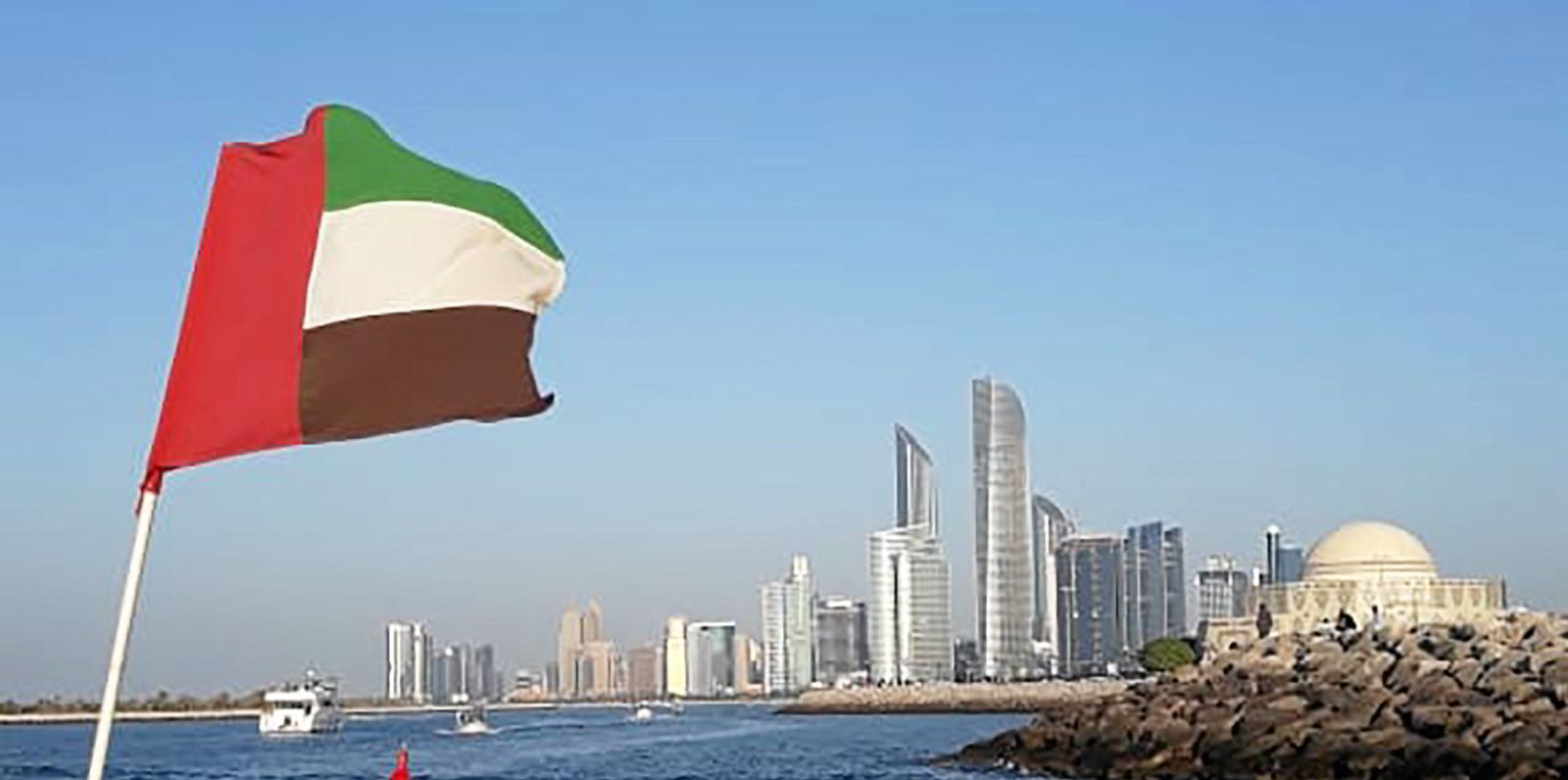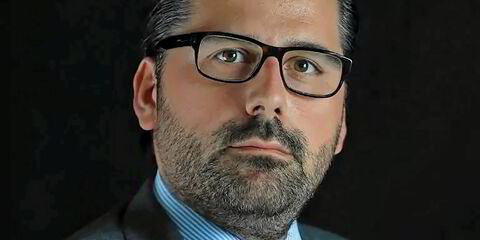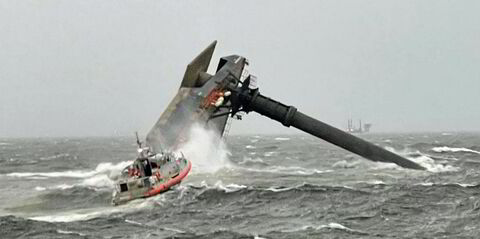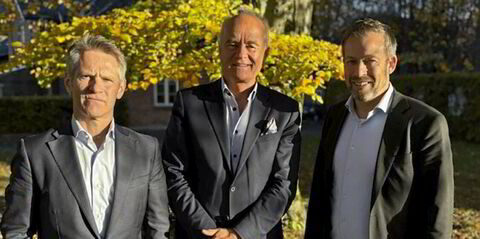The tightening of shipping sanctions targeting the Kremlin will drive European operators from the Russian oil business and leave a lightly regulated “dark fleet” in total control of the tanker trade, the CEO of Fractal Shipping has told TradeWinds.
Mathieu Philippe, who heads the only European start-up to join the lucrative market hauling price-capped Russian oil, said a regulatory crackdown would end the profit premium for such trades and hasten his company’s exit from the market.
The shift away from known and regulated operators will have profound safety and insurance implications, said Philippe, who strongly defended his company’s record in hauling Russian oil despite European Union sanctions targeting the Kremlin’s fossil fuel revenues.
The trades have put Fractal at the centre of the debate over the growing use of sanctions as a geopolitical tool that has divided operators and owners. Those who took the risk to dive into the Russian market made major profits over the last two years, analysts said.
“We’re still business people,” said Philippe. “I’m not a hero, I’m not saving the world, but we are actually on the right side.”
In a wide-ranging interview, his first since launching the company in 2022, Philippe revealed:
- Fractal’s Dubai-based backers tore up their business model within days of the Russian invasion.
- The US Treasury’s sanctions body asked for months of information on Fractal tanker movements.
- Plans for a second Fractal set-up in Dubai were hastened by Swiss banks’ exit from Russian oil.
- He met US regulators in Washington last year to ensure the company was in line with US policy.
Philippe established Fractal Shipping in Geneva in February 2022, less than three weeks before the Russian invasion of Ukraine, after being approached by Qatari and Dubai backers to build an asset-driven shipping company backed by a Luxembourg fund.
By the end of the month, the backers had thrown out the strategy and backed Philippe to build a commercial operation and rapidly build a fleet that would grow to 30 vessels.
From December 2022 and the introduction of the first oil price caps, the strategy exploited the conflicting ambitions of the G7 sanctions regime, which aimed to reduce the Russian war chest for war in Ukraine while keeping global oil flowing.
The rise of the shadow, or grey, fleet has been driven by the increasing use of sanctions by the US as a foreign policy weapon.
BRS Shipbrokers has assessed 675 ships, representing more than 7% of the global tanker fleet, form the grey fleet, but definitions and numbers vary. Submissions to the International Maritime Organization last year in March put the number at between 300 and 600.
The ships haul oil from Iran, Venezuela and Russia — three countries that the US seeks to influence through financial and legal pressure.
BRS rates the grey fleet based on four tiers, ranging from directly sanctioned ships mainly owned by state-controlled companies to start-ups that transport price-capped Russian oil along with other mainstream trades.
This definition would capture Fractal — which has always denied being part of the shadow fleet — and BRS accepts there is a strong argument such operators should be considered the same as mainstream tankers involved in the same business.
The most worrying are the 204 privately owned ships that only engage in sanctioned trades. They have an average age of 21 with opaque ownership, insurance and certification.
But many European competitors shunned the trade — citing compliance, legal, reputational, cost and ethical issues — and the epicentre of Russian business has shifted to Dubai where a new cadre of ship operators opened up shop to haul sanctioned oil with limited exposure to the Western regime.
‘It has to be legal’
Some of the new owners have opaque ownership structures along with limited European or US exposure and concerns have also been raised about the level of accountability, transparency and insurance cover.
Fractal faces more constraints and as a European citizen, Philippe, a French-British dual national, would be criminally liable for any sanctions evasion as the ultimate beneficial owner of the Geneva and Dubai operations, according to senior European officials.
Philippe said every transaction required a dozen exchanges with the banks and the company has taken external legal advice. Fractal ships are flagged by Panama, which has offices in the US, and are classed and insured by G7 providers.
“I’m trying to remain as non-political as possible,” said Philippe. “For us, it has to be legal, it has to be within the parameters, or the sanctions, set by the countries that some of the team come from.
“We have a number of nationalities and some of them are Europeans … we definitely don’t want to go against the interests of our own countries.
“Now, are we driven by opportunity? Are we driven by business? Yes, I think we have to be clear about this — we are in shipping and like every shipping company we have to report to our stakeholders.”
Regulators have signalled that they intend to impose tighter controls on shipping Russian oil after the US sanctioned eight tankers because of suspected price cap breaches since October.
In its 12th sanctions package announced in December, the EU has added extra layers of monitoring for the sale of tankers for use in Russia.
The G7 group of countries who devised the price cap announced updated rules last year for more detailed attestation forms, the documents used by shipping companies to show banks, insurers and governments that the oil they haul is being sold below $60 a barrel.
It requires a more detailed breakdown of insurance and freight costs to disrupt the circumvention of sanctions “by reducing opportunities for bad actors to use opaque shipping costs to disguise oil purchased above the cap”, according to the guidance.
The new rules are due to be brought in at the end of February. Philippe said that some traders would likely refuse to work with the new rules as it would force them to reveal their margins. “They’re asking for a lot of details that are private and confidential to any contract,” he said.
He visited Washington DC in November last year to meet with regulators to discuss the company’s operations and to ensure alignment with US foreign policy aims.
He said he was in direct contact with the US Treasury’s Office of Foreign Assets Control (Ofac) and was expecting to visit the US again next month.
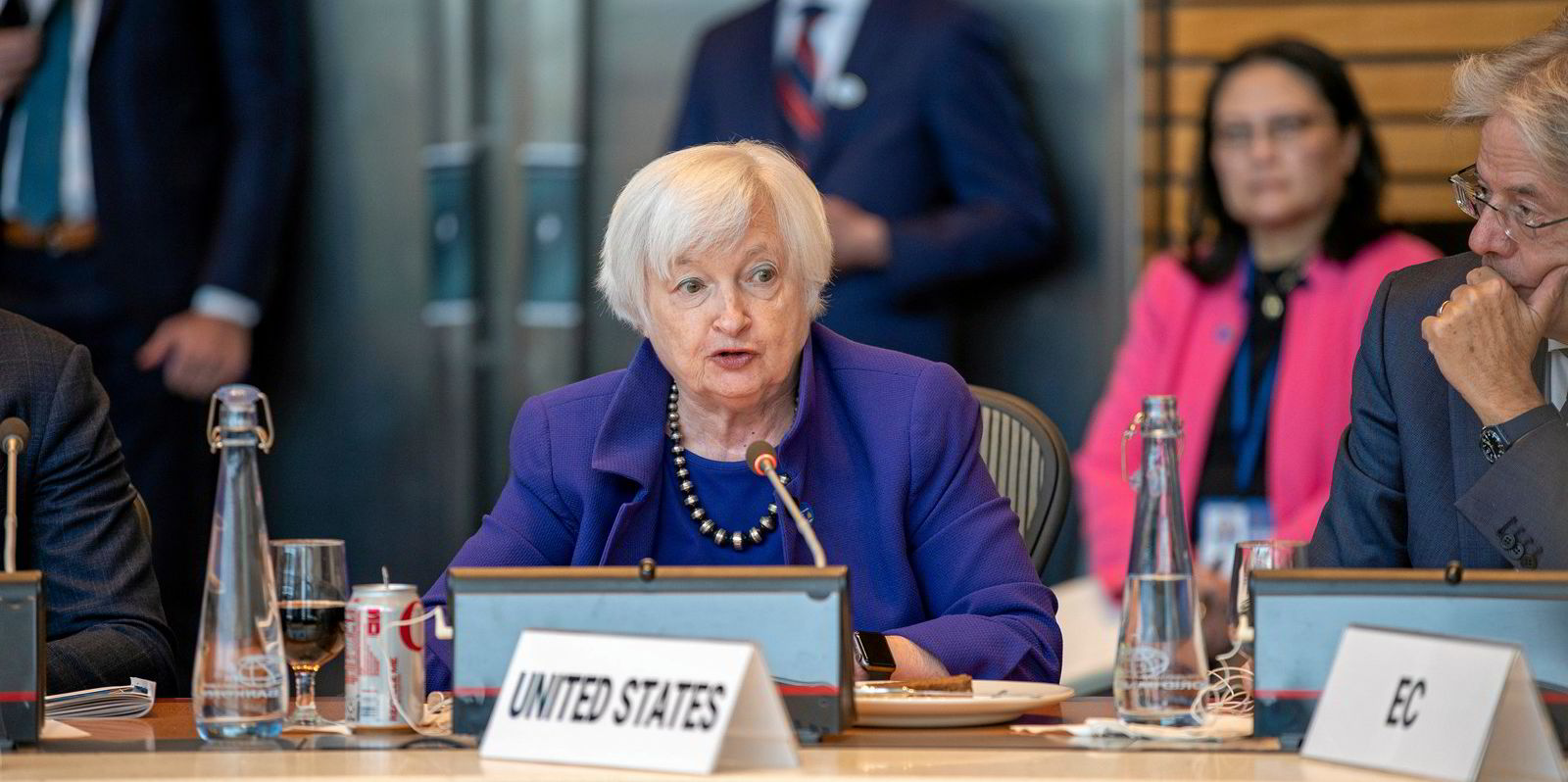
The first was planned before Fractal was one of the 30 or so managers and owners who received letters from Ofac. The letters asked for detailed information on specific ships over months.
Philippe said he wanted to hear the regulator’s confirmation that Ofac wanted Russian oil to flow but with reduced benefit for the Kremlin.
‘Doing the right thing’
“I met people writing the sanctions and they confirmed that we were on the right side and they, of course, urged us to remain on the right side.”
He said that would happen by keeping channels of communication open with regulators and “being entirely transparent and responsive when they ask for documents”.
He added: “Where I felt that we were doing the right thing is that they told me: ‘It does make a difference who carries it. We need to know who carries it’.”
Philippe said that he was confident that the attestation forms used by Fractal were not forged. He said charterers who did not want to supply the information contacted other ship operators to haul the cargo.
“I believe in my process and whenever I had doubts, we refused,” he said. “I don’t believe for a minute that someone would take the risk of forging documents.”
He said he sent a warning about what would happen if the new rules meant he and Greek competitors could not haul price-capped oil.
“What is going to happen … the ships are going to be sold one by one,” he said. “It will take time, maybe a few months.
“But if we cannot capture this premium on the chartering, we will have to capture the premium on the asset price.
“I think as an industry we have the experience to know what’s going to happen. What is going to happen is exactly what happened in the Iranian-Venezuelan trade. Dark. As dark as you get.”
Russia remains a key market
Some of the sanctioned ships collected cargoes from the Russian Far East ports, including Kozmino, where ESPO crude has consistently traded higher than the main export-grade Urals from the Black Sea and Baltic ports.
Fractal has done no trades from Kozmino since May last year when the 105,380-dwt crude tanker Harmonia (built 2008) hauled 715,000 barrels of oil to the Chinese port of Rizhao, according to Kpler ship tracking.
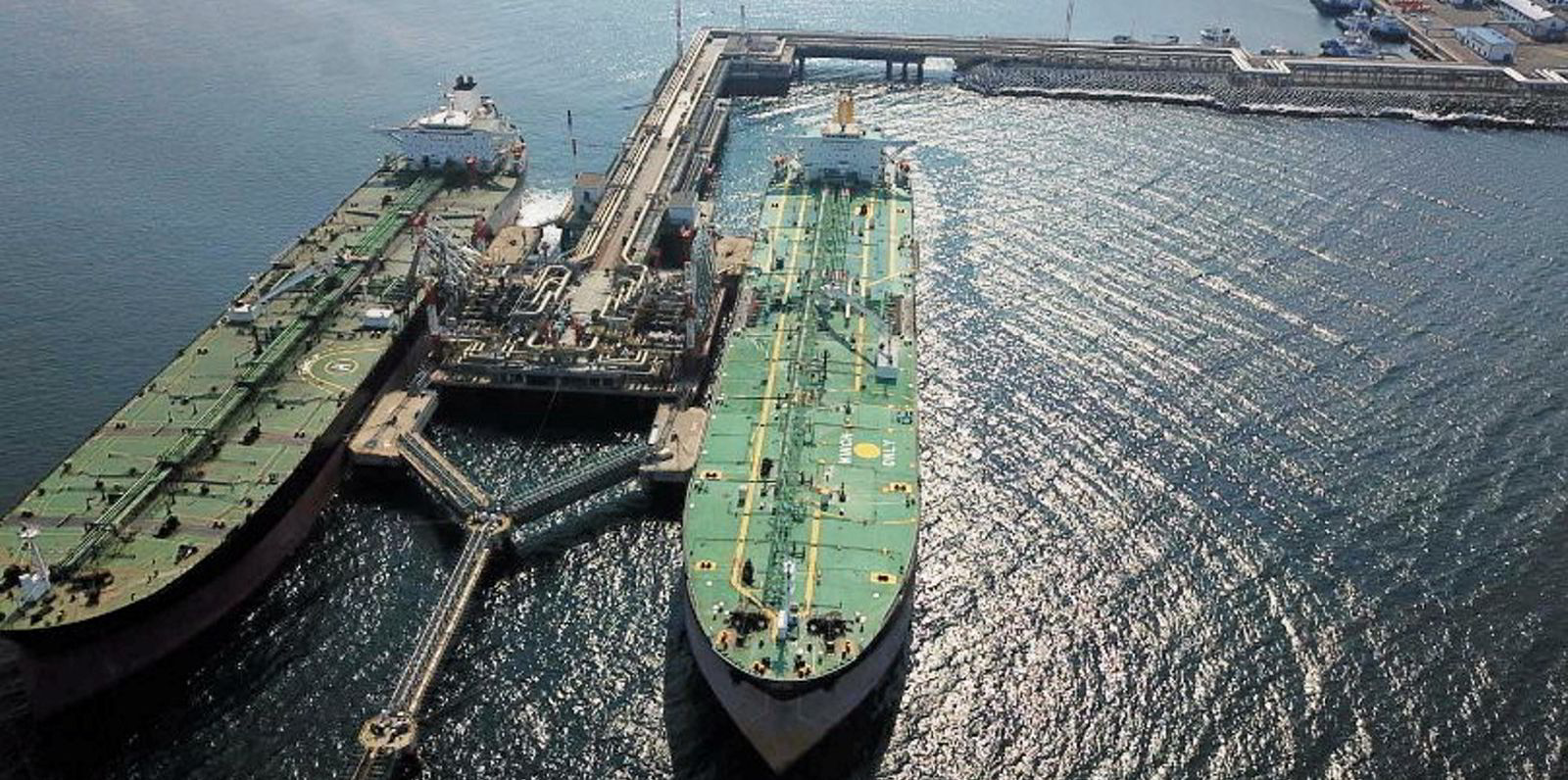
“We’ve not touched it since for various reasons — and it’s always a mixture of reasons — but we are definitely not comfortable at all with Kozmino from almost the start,” said Philippe.
Russian oil accounted for 95% of Fractal business in the early days but slowed dramatically in August as price rises took crude above the $60 a barrel cap price, a figure that has not changed for more than a year.
As prices fell amid uncertainties over the global economy, the company’s trading volumes picked up again and Russian oil remains the majority of its cargoes.
- May 2021: Mathieu Philippe approached by Middle East backers to set up an international shipping firm
- 4 Feb 2022: Fractal Shipping registered as a company in Geneva
- 24 Feb 2022: Russia invades Ukraine throwing oil markets into turmoil
- March 2022: Fractal rewrites business plan to build a Russia-focused fleet
- Sept 2022: Dubai office opens to run operations and be close to tanker shipowners
- Dec 2022: Fractal operates fleet of more than 20 ships as crude oil price cap introduced
- June 2023: Dagens Naeringsliv publishes investigation detailing scale of Fractal’s Russian business
- Aug 2023: Fractal issues public statement and insists it “faithfully abides” by price cap rules
- Oct 2023: US Treasury sanctions first ships and companies over price cap breaches
- Nov 2023: Philippe meets US sanctions framers over cap compliance
- Jan 2024: Fractal details plans for “smooth transition” from Russian trade as premiums decline
Part 2: Fractal CEO Mathieu Philippe on Russia, reputation and future prospects
Read more
- Fractal Shipping avoids Russian crude in latest sign of price cap biting
- Fractal crew in SOS migrant rescue as crossings surge
- IEA declares price-cap ‘smashing’ Russian crude off-limits to EU shipping
- We’re following price cap rules on Russian trades, says Fractal boss
- European shipping seeks escape from Russian trades as barrels breach price cap
- Heir of Onassis? Fractal hints at ambitious plans as scale of Russian oil trades is revealed


